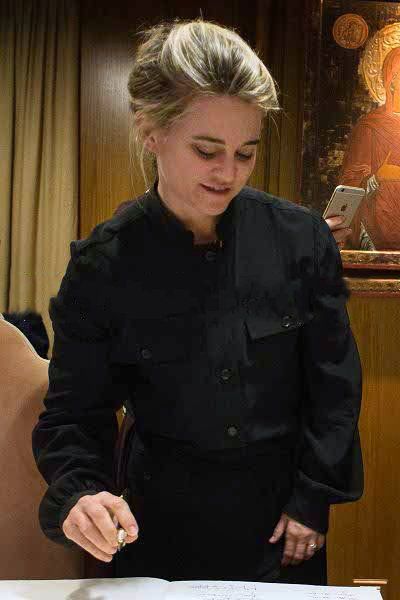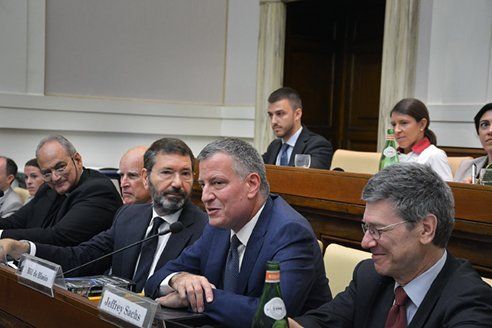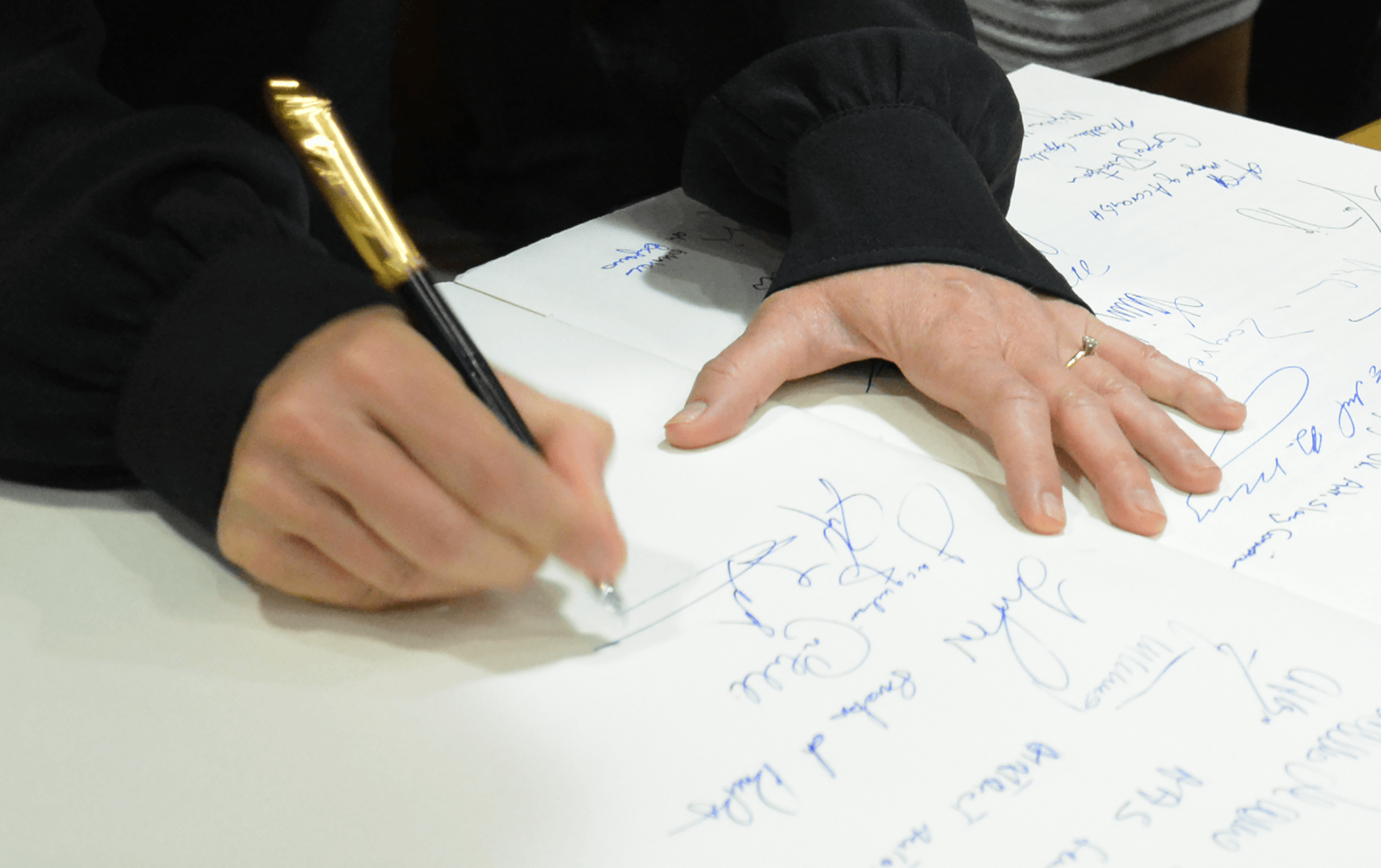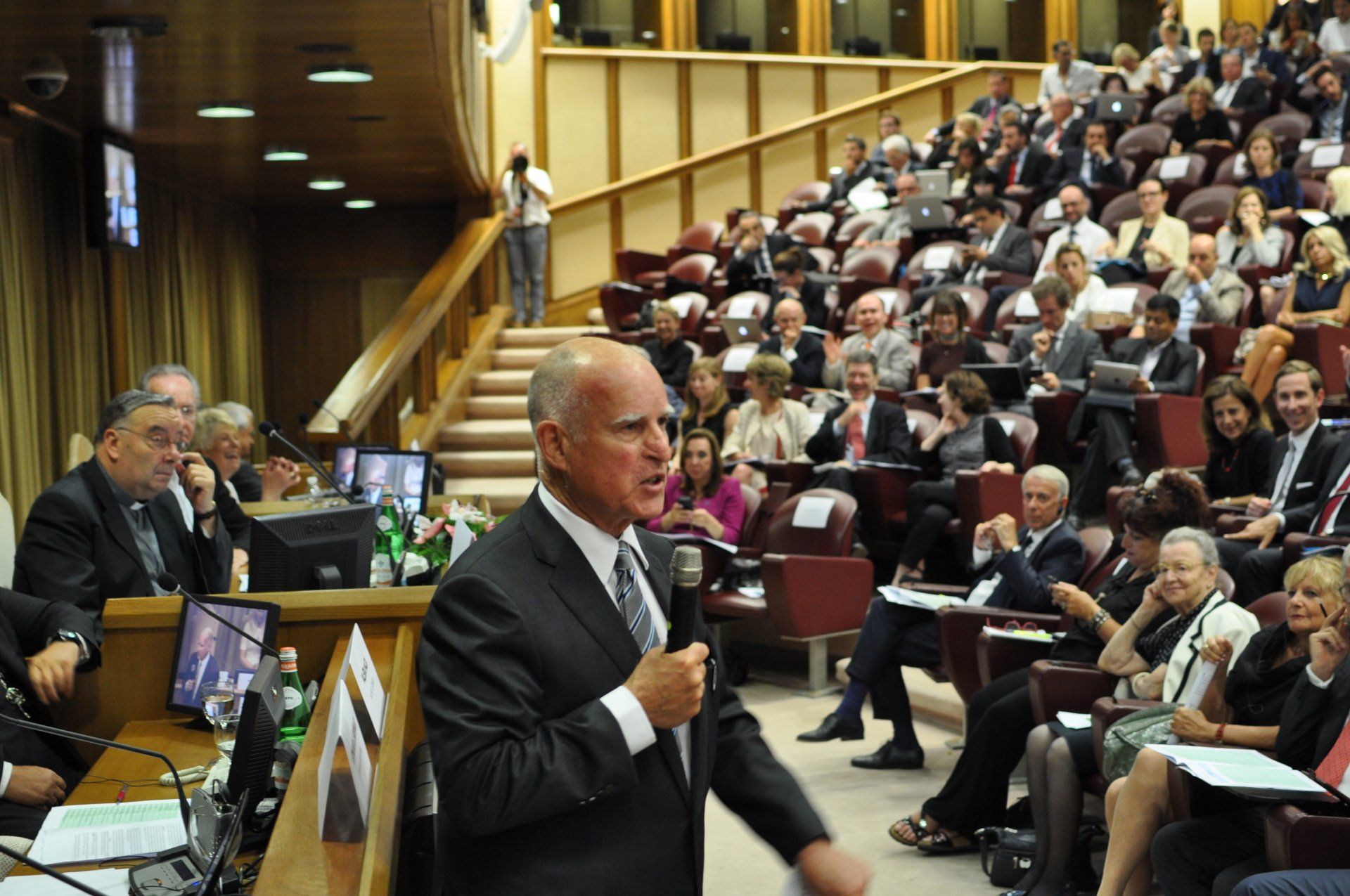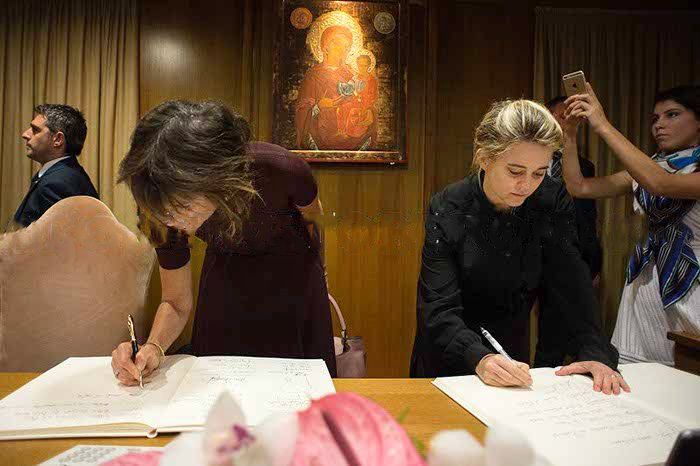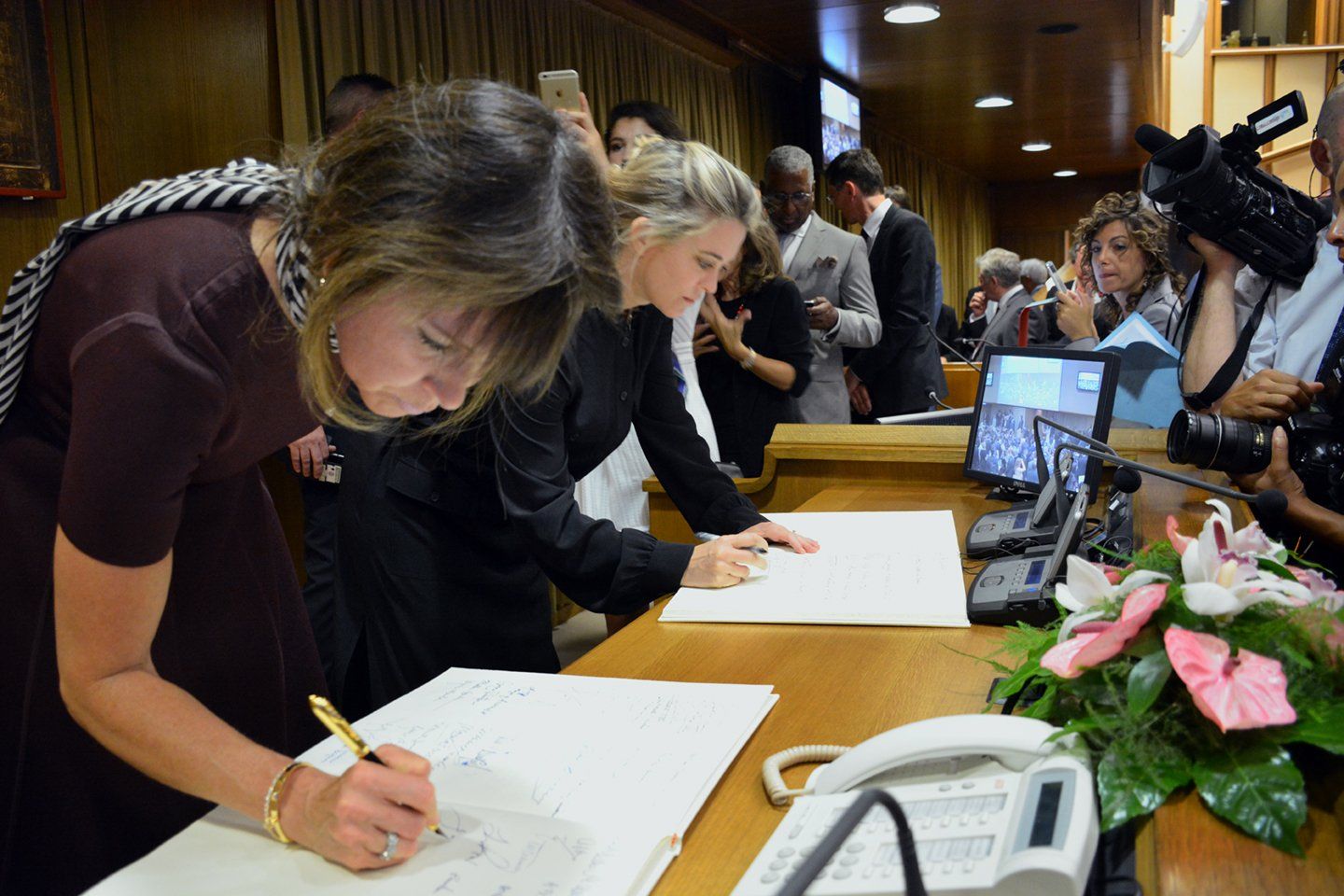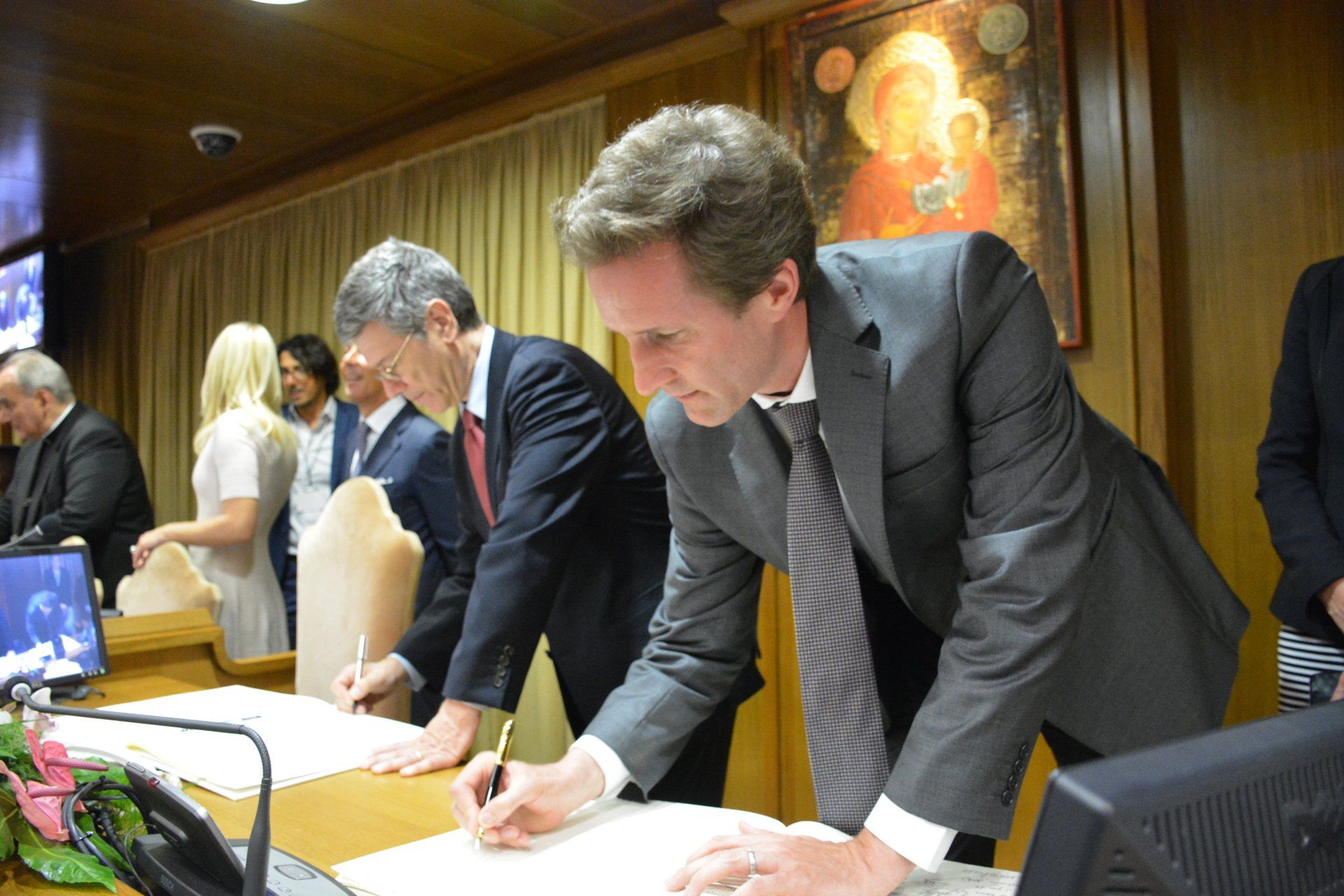Synod Hall, Vatican City - The Blue Chip Foundation, represented by founder Jennifer Stengaard Gross, joined with city mayors from across the globe to address two fundamental issues facing humanity: modern slavery and human-induced climate change.
"More than 45.8 million people are trapped in some form of slavery, with 168 million children engaged in labor," says Gross. "The illegal profits are astronomical, topping about $150 billion a year. Pope Frances has repeatedly asked all communities to reject all forms of human slavery, whether it's part of personal or commercial exploitation. Climate change affects those vulnerable populations the most, and Blue Chip Foundation is committed to taking appropriate steps to dial back the damage that's already been done."
City-level politicians from Croatia, Jamaica, Italy, Brazil and the U.S. - as well as those from Canada,
Nigeria, France, and a whole host of other countries joined together to issue a declaration that reads, in part, "In this core moral space, cities play a very vital role. All of our cultural traditions uphold the inherent dignity and social responsibility of every individual and the related common good of all humanity. They affirm the beauty, wonder and inherent goodness of the natural world, and appreciate that it is a precious gift entrusted to our common care, making it our moral duty to steward rather than ravage the garden that is our 'common home.'"
(Read the entire declaration here.)
"Enthusiasm towards ethical solutions is something I’m not used to seeing in politicians," says Gross. "I gained a new respect for mayors and feel that the only way to accomplish true sustainability is city by city. The national governments are failing us, and in the future, I feel mayors will be able to accomplish things in a way which states or nations cannot."
The group also committed to ending abuse, exploitation, trafficking, and all forms of modern slavery, calling them crimes against humanity. The goal, according to the joint declaration issued after the workshop: "We want our cities and urban settlements to become ever more socially inclusive, safe, resilient and sustainable."
"Roughly 60 percent of the global population lives in cities. These 60 percent are responsible for about 70 to 80 percent of global energy production and, at the same time are most vulnerable to the effects of climate change. There are a number of challenges that we are facing and try to keep up with,” said Christian Gaebler, Permanent Secretary of the Berlin Senate. “To make up the challenges, the Berlin Senate set the goal for the city to become climate neutral by 2050. The city of Berlin will present its climate and energy policy, being aware of our responsibility as an European capital and openly aim at being a frontrunner in climate protection and energy policy."
California Governor Edmund G. Brown, Jr., said, "In the spirit of the pope’s encyclical this unprecedented gathering of global leaders is a wake up call to face up to the common threats of climate change and human exploitation. This is about the future of humanity and how we as human beings live and treat one another and the natural world around us."
